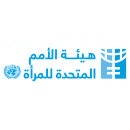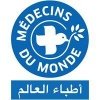Consultant – Women’s Leadership Mapping Resource/Booklet
Title: National consultant to Develop a Women’s Leadership Mapping Resource/Booklet - home-based
Background:
UN Women (UNW), grounded in the vision of equality enshrined in the Charter of the United Nations, works for the elimination of discrimination against women and girls; the empowerment of women; and the achievement of equality between women and men as partners and beneficiaries of development, human rights, humanitarian action and peace and security. Placing women’s rights at the centre of all its efforts, the UN Women leads and coordinates the United Nations system efforts to ensure that commitments on gender equality and gender mainstreaming translate into action throughout the world. It provides strong and coherent leadership in support of Member States’ priorities and efforts, building effective partnerships with civil society and other relevant actors.
UN Women’s triple mandate, along with its global network and deep policy and programming expertise, continues to endow the Entity with a unique capacity to: (i) support Member States to strengthen global norms and standards for gender equality and women’s empowerment, and mainstream gender perspectives in other thematic areas; (ii) promote coordination and coherence across the UN system to enhance accountability and results for gender equality and women’s empowerment; and (iii) undertake operational activities to support Member States, upon their request, in translating global norms and standards into legislation, policies and strategies at country level.
UN Women plays an innovative and catalytic role in the State of Palestine since its inception in 1997 (as UNIFEM). In line with the national priorities, the work of UN Women for the period 2023-2025 is aligned with three of the Palestine United Nations Sustainable Development Cooperation Framework’s (UNSDCF) outcomes:
• Palestinians have greater access to economic opportunities that are inclusive, resilient, and sustainable, including decent employment and livelihoods opportunities in an empowered private sector.
• Palestinians, including the most vulnerable, have equal access to sustainable, inclusive, gender responsive and quality social services, social protection, and affordable utilities.
• Palestinian governance institutions, processes, and mechanisms at all levels are more democratic, rights-based, inclusive, and accountable.
Its three-year Strategic Note supports the efforts to achieve measurable results in country in terms of four UN Women global Strategic Plan impacts (2022-2025): (SP Impact 1). Governance and participation in public life; (SP Impact 2). Women’s Economic Empowerment; (SP Impact 3). Ending Violence Against Women and Girls and; SP Impact 4. Women peace and security, Humanitarian & Disaster Risk Reduction.
To develop a comprehensive, dynamic, and user-friendly Women’s Leadership Mapping Resource/Booklet that identifies and maps women leaders across various sectors, including political, economic, social, and humanitarian domains. This consultancy will be responsible for outlining the scope, defining key responsibilities, and establishing clear expectations for the creation of the resource.
The resource will aim to amplify the voices of Palestinian women leaders, ensuring their visibility in key decision-making processes and promoting their active participation in policymaking, peacebuilding, and recovery efforts. This initiative aligns with the objectives of the Palestinian Women Lead the Way Programme, which focuses on advancing the role and leadership of Palestinian women in humanitarian response, peacemaking, and recovery following the October 2023 War. The programme is rooted in the commitments of the Women, Peace and Security (WPS) Agenda, with the goal of fostering greater inclusion and gender-responsive leadership at all levels of decision-making.
The Women’s Leadership Mapping Resource will serve as an essential tool for media outlets, policymakers, and organizations, providing them with a comprehensive directory of influential women leaders to consult for expert perspectives. This resource aims to bridge the gender gap in leadership and contribute to the broader goals of gender equality (SDG 5) and peace, justice, and strong institutions (SDG 16).
Objective of the Consultancy: The primary objective of this consultancy is to develop a comprehensive, dynamic, and accessible Women’s Leadership Mapping Resource/Booklet that profiles Palestinian women leaders across multiple sectors, including politics, economics, social justice, peacebuilding, humanitarian relief, and recovery.
This resource will directly contribute to the outcomes of the Palestinian Women Lead the Way Programme, specifically to:
- Amplify the voices of Palestinian women leaders and promote their leadership roles in key decision-making processes, including humanitarian response, post-conflict recovery, and peacemaking efforts.
- Support women-led organizations by increasing their visibility and enhancing their capacity to engage in WPS-focused advocacy, policymaking, and decision-making efforts.
- Facilitate greater consultation of Palestinian women leaders by decision-makers and media outlets, ensuring their perspectives are integral to policy discussions and public discourse.
- Strengthen networking and collaboration among women leaders across sectors and regions, encouraging alliances that can drive social impact and gender-balanced leadership at local, national, and international levels.
By producing this resource, the consultancy will contribute to the following key outputs of the programme:
- Output 3.1: Empower women feminist leaders by providing them with the resources and capacity to engage in and lead WPS-focused advocacy and policymaking.
- Output 3.2: Ensure that key policymaking, peacebuilding, and recovery processes are informed by the voices and perspectives of Palestinian women, including young women, thus influencing peacebuilding and recovery efforts.
Ultimately, this consultancy aims to increase the visibility of Palestinian women leaders, empower them through recognition and consultation, and provide a vital tool for networking and collaboration that enhances their roles as agents of change in post-conflict Palestine.
The consultant will be reporting to UN Women WPS Specialist as the overall supervisor, and will work closely and be supported by UN Women WPS Analyst, who will be the point of contact on the contract and payment issues. The consultant will provide regular progress updates and highlight any challenges encountered during the process. The final deliverables will be presented for review and approval before being finalized.
Description of Responsibilities/ Scope of Work
The consultant will undertake the following tasks:
Mapping of Women Leaders:
- Identify and compile a diverse list of around 100 women leaders who have made significant contributions across various sectors, including politics, economics, social justice, peacebuilding, humanitarian relief, and recovery.
- Ensure the inclusion of women from diverse backgrounds, including but not limited to those from different regions (West Bank, Gaza, Jerusalem and Palestine 1948 where possible), sectors, and marginalized groups (e.g., rural women, refugee women, women with disabilities, young women, etc.), emphasizing the intersectionality of their experiences.
- Categorize women leaders according to their area of expertise (e.g., politics, social activists, human rights, peacebuilding, humanitarian aid, public intellectuals, business, climate change, etc.).
- Together with UN Women, define the target audience for the resource and how the audience will be reached, which may include local, national, and international stakeholders such as policymakers, NGOs, media outlets, humanitarian organizations, peacebuilding entities and business leaders.
Development of Profiles:
- For each woman leader, develop a short profile of one page highlighting:
- Their background, position, role, and contact information (with their consent).
- Key achievements and contributions in their respective fields, with a focus on their leadership in humanitarian relief, politics, peacebuilding, social justice, and other critical areas.
- Personal stories, challenges overcome, and insights for future leaders, emphasizing the unique roles women have played in conflict and conflict recovery, governance, and the advancement of women’s rights.
- Profiles should be written in a clear and engaging manner to encourage media and decision-makers to engage with them
- Ensure privacy and data protection by using consent mechanisms and respecting confidentiality, especially for sensitive information. The consultant will be required to maintain confidentiality regarding all information gathered during the project. All materials created during the consultancy, including the directory, booklet, and any related content, will remain the intellectual property of UN Women.
Collaborate with UN Women communications team on the Desing and Development of a Printed Format:
While the layout design of the booklet will be carried out by UN Women, however, the consultant shall:
- Prepare the final refined Arabic profiles for the selected women leaders, categorized by sector, including their biographies and contributions after collecting and incorporating all stakeholders’ feedback.
- The Arabic booklet should provide relevant, up-to-date information, highlighting women leaders in peacebuilding, humanitarian efforts, and other key areas of influence.
- While the primary format is printed, the consultant shall include suggestions for integrating multimedia elements (such as interviews or videos) into an accompanying digital resource, allowing readers to explore more dynamic content related to the leaders and their work.
- UN Women communications colleagues in consultation with the consultant shall create a well-structured, printable booklet that serves as a comprehensive guide on women leaders across various domains of influence.
- UN Women in consultation with the consultant shall ensure the booklet is designed for easy navigation, with a clear layout and organized sections that allow readers to quickly find information about women leaders across various domains of influence and their contributions.
Engagement Strategy:
- Under the supervision of UN Women communications specialist, develop an Engagement Plan aiming to ensure target media outlets, decision-makers, and organizations are aware of this new resource and can consult the resource and engage with the women leaders featured.
- Create actionable recommendations for how these stakeholders can proactively involve women leaders in their work, ensuring that the resource promotes leadership, gender equality, and inclusion across all sectors, including policymaking, peacebuilding, and humanitarian response.
- Establish a process for ongoing stakeholder involvement throughout the development of the resource, ensuring that diverse perspectives are incorporated into both the research and final product.
Workshops for Stakeholders:
- Organize and conduct at least two workshops with key potential users from West Bank, Gaza and Jerusalem of the resource/booklet (e.g., policymakers, NGOs, WLOs, WROs, media outlets, educators, business leaders, peacebuilding organizations) to introduce the drafted resource in Arabic and gather feedback.
- Facilitate feedback discussions and validation on usability and functionality of the booklet to refine the product based on user insights, ensuring it meets the needs of the target audience and contributes to advancing women’s leadership in multiple domains.
- Use workshops as a platform to raise awareness about the importance of recognizing and promoting women leaders and provide an opportunity for stakeholders to connect with the featured leaders and engage in meaningful dialogue.
- Produce a report on the workshops in English, which should include, but not be limited to:
- A summary of participant discussions.
- Feedback on the effectiveness and utility of the resource/booklet.
- Recommendations for improving the resources.
- An overview of efforts to raise awareness about women’s leadership, including discussions, featured leaders, and outcomes.
- A summary of collaborations and future commitments to promoting women’s leadership.
- Copies of attendance sheets, presentations, handouts, and any multimedia materials used to engage participants.
Recommendations for Regular Updates:
- Develop a system for updating the directory annually to ensure it remains relevant and continues to highlight emerging women leaders, especially those actively contributing to post-conflict recovery, social justice, and peacebuilding.
- Suggest mechanisms for stakeholders to contribute new leaders or update existing profiles, ensuring the resource reflects ongoing developments in women’s leadership across multiple sectors.
- Recommend a sustainability model for long-term management of the resource, including responsibilities for future updates, ensuring the booklet remains an active and relevant tool for promoting women’s leadership and participation in decision-making.
The consultancy will utilize the following methodology:
- Desk Research: Conduct thorough research using existing databases, reports, and news outlets etc., to identify women leaders across various sectors.
- Consultation with Key Stakeholders: Engage with experts, women rights organizations (WROs), women led organizations (WLOs), and networks to ensure the list reflects a broad and diverse range of leadership profiles. Specific consultation will be conducted with marginalized groups to ensure representation and inclusion.
- Interviews and Direct Outreach: Conduct interviews with the featured women to gather personal insights and experiences for the profiles.
- Risk Mitigation Plan: Identify potential risks such as delays, challenges in engaging women in Gaza and in obtaining consent, or unavailability of key women leaders, and outline strategies for managing and mitigating these risks.
- Privacy and Consent: Develop a process to ensure that all data gathered is done with informed consent, particularly for personal stories and sensitive information. Adhere to data privacy standards and ensure that women leaders have control over and can review and input into the information shared.
- Drafting and Review: Draft the booklet, circulate it for internal review (in Arabic), and incorporate feedback from stakeholders such as WLOs, WROs, policymakers, and media professionals.
- Finalizing and Publishing: collaborate and provide feedback to UN Women communications colleagues on the design and format the of the final version of the booklet for distribution and launch.
Deliverables
Deliverable Expected completion time (due day) 1.Comprehensive List of Women Leaders: a final, comprehensive list of 100 women leaders mapped across various sectors, organized by region and area of expertise. 10 June 2025 - TBC 2.Leader Profiles completed profiles for each of the 100 featured woman leaders, including their background, achievements, and insights. 10 July 2025 -TBC 3. A draft of the Booklet (including initial profiles and layout) for stakeholders’ feedback. 30 July 2025 - TBC 4.Workshops report in English as detailed in section II of this ToR. 15 August 2025 - TBC
5.A final Arabic version of the booklet after incorporating all stakeholders’ feedback. “Ready for final design layout and print” (the layout design will be conducted by UN Women communications team in consultation with the consultant).
6.Engagement strategy document in English outlining actionable steps for policymakers, media, and organizations to engage with the leaders featured in the resource.
7.Recommendations for Ongoing Updates in English A framework for keeping the booklet current and relevant, including suggestions for regular additions to the resource and mechanisms for updates.
30 August 2025 - TBC
Consultant’s Workplace and Official Travel
This is a home-based (oPt) consultancy. During the assignment the consultant should take into consideration travel between West Bank cities. Data collection and consultations with Palestinian women and other stakeholders in Gaza, Jerusalem and possibly in 1948 can be conducted using online methods.
Jobs.ps, Ltd. All Rights Reserved.
Competencies :
Core Values:
- Integrity;
- Professionalism;
- Respect for Diversity.
Core Competencies:
- Awareness and Sensitivity Regarding Gender Issues;
- Accountability;
- Creative Problem Solving;
- Effective Communication;
- Inclusive Collaboration;
- Stakeholder Engagement;
- Leading by Example.
Please visit this link for more information on UN Women’s Values and Competencies Framework:
Functional Competencies:
- Strong organizational and communication skills.
- Ability to work in a team.
- Excellent interpersonal and communication skills.
- Ability to use information technologies as a tool and resource.
- Commitment to UN values.
- Excellent analytical skills with strong drive for results and capacity to work independently.
- Ability to work under pressure on multiple projects whilst maintaining high-quality and timeliness.
- Experience in project management and delivery of high-quality outputs within agreed timelines.
- Excellent English communication and writing skills;
Education and Certification:
- Master’s degree or equivalent in Gender studies, development studies, WPS studies, political science or a related field is required.
- A first-level university degree in combination with two additional years of qualifying experience may be accepted in lieu of the advanced university degree.
Experience:
- At least 6 years of progressively responsible work experience in comprehensive research, mapping, and producing high-quality publications or resources focused on gender equality or women’s leadership is required.
- Experience in gender equality and leadership demonstrating strong understanding of gender dynamics, women’s representation, and leadership across various sectors (political, social, economic) is required.
- Experience in data gathering, data analysis on women leaders, and ability to synthesize this information into concise and impactful profiles is required.
- Previous experience working with the United Nations or other international organizations is desirable.
- At least two samples (one in English and one in Arabic) of previous relevant work such as reports, publications, or other materials, that corresponds to the required qualifications section IV, to be attached to the application.
Languages:
- Fluency in English and Arabic is required.
Statements :
In July 2010, the United Nations General Assembly created UN Women, the United Nations Entity for Gender Equality and the Empowerment of Women. The creation of UN Women came about as part of the UN reform agenda, bringing together resources and mandates for greater impact. It merges and builds on the important work of four previously distinct parts of the UN system (DAW, OSAGI, INSTRAW and UNIFEM), which focused exclusively on gender equality and women's empowerment.
Diversity and inclusion:
At UN Women, we are committed to creating a diverse and inclusive environment of mutual respect. UN Women recruits, employs, trains, compensates, and promotes regardless of race, religion, color, sex, gender identity, sexual orientation, age, ability, national origin, or any other basis covered by appropriate law. All employment is decided on the basis of qualifications, competence, integrity and organizational need.
If you need any reasonable accommodation to support your participation in the recruitment and selection process, please include this information in your application.
UN Women has a zero-tolerance policy on conduct that is incompatible with the aims and objectives of the United Nations and UN Women, including sexual exploitation and abuse, sexual harassment, abuse of authority and discrimination. All selected candidates will be expected to adhere to UN Women’s policies and procedures and the standards of conduct expected of UN Women personnel and will therefore undergo rigorous reference and background checks. (Background checks will include the verification of academic credential(s) and employment history. Selected candidates may be required to provide additional information to conduct a background check.)
Note: Applicants must ensure that all sections of the application form, including the sections on education and employment history, are completed. If all sections are not completed the application may be disqualified from the recruitment and selection process.
Interested and qualified candidates can apply online through Apply Now-button below







